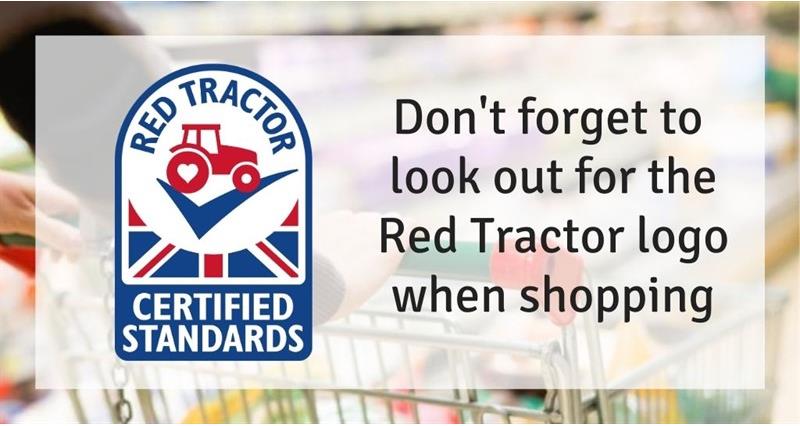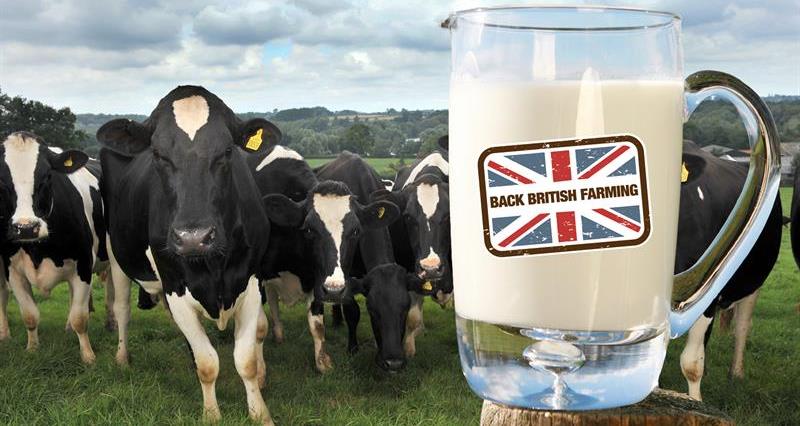For many dairy farmers, it has already reached crisis stage. The loss of the 'out of home' market (restaurants, cafés and pubs) has resulted in unsustainably low prices being paid for their milk , leaving many dairy farming businesses struggling to make ends meet. This has affected both standard milk producers and the niche or speciality cheese and yoghurt makers, with limited outlets for a surplus of milk and dairy products on the market.
Some dairy farmers have had issues with their milk not being collected, with logistics and processing struggling to adapt quickly to such a change in the markets. You may have seen empty shelves or buying restrictions on dairy products at supermarkets, but confusingly heard that some milk is being disposed of on farm, or you may be wondering why farmers don’t just give their excess milk away?
We've put together a list of questions and answers to help you understand the current situation and challenges facing the UK dairy sector and to pinpoint how you can help.
Consumer buying patterns have been unpredictable. A lot of people initially stockpiled various products which led to a shortage on shelves. It was difficult for retailers to adapt to such sporadic demand and quickly move more milk to areas where demand was high. Processors have been running to capacity to keep up with demand, and due to COVID-19 causing labour shortages, some stores have seen fewer deliveries.
This stockpiling has now had a delayed effect, with buying patterns varying day-to-day at different stores. As a perishable product, milk is usually sent directly to the supermarket shelf from the processor, and is under a “Just in Time” method of distribution. This means that when there are spikes or drops in demand, it is hard for retailers to react quickly and change their stocking.
You'll have seen some products completely unavailable in store such as small or large bottles of milk, or specialist products. This was an approach by the supply chain to streamline the supply of dairy produce to the public so that the basics were readily available to all.
While most supermarkets have lifted almost all product restrictions, you may still see some at a local level due to individual store circumstances.
With the loss of nearly all food service outlets (restaurants, pubs, cafés, coffee shops plus schools and other community centres), there has been a surplus of milk placed onto the market that only a few weeks ago, had a home. While the overall demand for milk at retail remains slightly inflated, this is not enough to make a substantial difference on overall volumes available. This excess supply has resulted in farmers receiving a reduced price for each litre of milk they produce. In many cases, this is considerably lower than the cost of production, making it difficult for farmers to make ends meet and impossible to make any profit.
Dairy processors who previously supplied food service outlets have been hit particularly hard, making it difficult for them to pay farmers, hence reduced milk prices and delayed payments. Producers of niche dairy products (such as cheese that you'd only find at the deli counter) are also struggling due to the loss of food service and streamlining of supermarket operations. Some retailers have supported these producers by reopening deli and fresh counters to sell more regional or specialist products.
There are strict hygiene controls that must be considered when selling milk to the public and the Food Standards Agency guidance must be followed. Only producers who are registered with the Food Standards Agency can legally sell raw milk at the farm gate. This is not a viable short term option for dairy farmers given the regulatory and infrastructure needs of such an operation.
The NFU is in conversation with food surplus and redistribution organisations about getting food to those in need and minimising food waste. While food banks certainly require dairy produce, the perishability of the product brings with it some hurdles, such as safe storage and distribution. The industry is working closely to try and direct nutritious dairy products to those that need it most and to lessen waste.

Processing facilities in the UK are very limited and often specialised, meaning that a standard liquid milk processing plant cannot suddenly begin producing cheese or butter.
Freezing large quantities is also not an option as storage capacity for frozen or powdered product is limited.
Once a cow starts producing milk, it can’t just “stop” – it’s not like a tap that can be switched off. Decisions to “dry off” a cow, which means easing them out of milk production before they would have otherwise finished producing milk, must be taken carefully to ensure that future demand of milk is accounted for, particularly when the food service markets reopen.
Buying British dairy products from the supermarket, or direct from farmers, at a farm shop or other outlet is a great way to support our hardworking dairy farmers. Perhaps you could even look to explore other delicious dairy products on offer, including a huge variety of different cheeses or yoghurts that you may not have tried before. There are so many ways to incorporate butter, milk and cheese into your cooking. Not only can the nutritionally wholesome dairy products provide you and your family with many health benefits, they're also delicious!
Click here to learn more about the many nutritional benefits of dairy products.
To find a farm near you that sells milk at the farm gate click here, or to find your local milkman follow this link.
The NFU and dairy industry are all working closely together and are fully committed to not only ensuring our dairy farmers are supported by the UK government, but also to ensure the continuous supply of dairy produce to you, the consumer.
The industry is exploring every possible avenue to ensure that milk surplus is carefully managed and not wasted, and to ensure that all farmers can continue to produce milk throughout the crisis and beyond.
